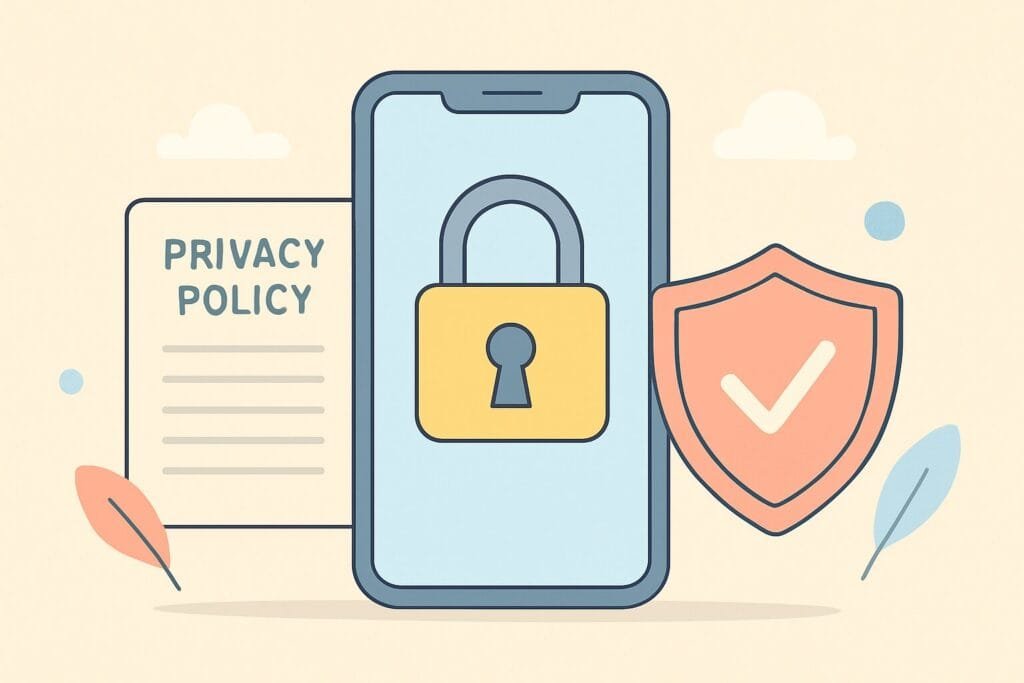In today’s digital age, mobile applications are at the center of our daily lives. From social networking and banking to fitness tracking and shopping, apps have become essential tools. However, with this convenience comes the responsibility of protecting user data. One of the most effective ways for app developers to ensure transparency and compliance is by providing a Privacy Policy. This article explains why a Privacy Policy is important for apps, how it benefits users and developers, and what elements must be included.

What is a Privacy Policy?
A Privacy Policy is a legal statement that informs users about how their personal information is collected, stored, used, and shared. In the context of apps, this can include data such as:
- Email addresses
- Location information
- Payment details
- Device identifiers
- Browsing and usage history
By providing a Privacy Policy, app developers establish trust and demonstrate their commitment to safeguarding user privacy.
Why is a Privacy Policy Necessary?
There are several key reasons why apps must include a Privacy Policy:
- Legal Compliance – Many countries and regions, including the European Union under GDPR, require apps that collect user data to display a clear Privacy Policy.
- Transparency – Users have the right to know what data is being collected and how it will be used.
- Trust Building – A well-written Privacy Policy can improve the credibility of your app and attract more downloads.
- Third-Party Requirements – App stores like Google Play and Apple App Store mandate developers to include a Privacy Policy, especially if the app uses third-party services like analytics or ads.
Benefits of a Privacy Policy for Developers and Users
Having a Privacy Policy not only ensures compliance but also creates long-term advantages. Here is a comparison of the benefits for developers and users:
| For Developers | For Users |
|---|---|
| Helps avoid legal penalties and app store rejection | Provides clarity about how their data is used |
| Builds trust and improves brand reputation | Offers transparency and peace of mind |
| Improves user retention by demonstrating responsibility | Gives them control over their personal information |
| Ensures compliance with global privacy regulations | Protects them against data misuse |
Essential Elements of a Privacy Policy
A complete Privacy Policy for apps should include the following sections:
- Data Collection – Specify what data is being collected (e.g., name, email, location).
- Purpose of Data Usage – Clearly outline why the data is collected (e.g., personalization, analytics, security).
- Data Sharing – Indicate if data will be shared with third parties such as advertisers or analytics providers.
- User Rights – Explain how users can request data access, correction, or deletion.
- Security Measures – Mention how the app ensures the protection of user data.
- Policy Updates – State how users will be notified when the Privacy Policy changes.
Consequences of Not Having a Privacy Policy
Failing to include a Privacy Policy can lead to serious consequences such as:
- Removal from Google Play or Apple App Store
- Legal penalties and fines
- Loss of user trust and app credibility
- Lower app downloads and negative reviews
Best Practices for Writing a Privacy Policy
When creating a Privacy Policy for your app, consider the following best practices:
- Use simple and easy-to-understand language.
- Be transparent and avoid vague statements.
- Ensure compliance with international laws like GDPR, CCPA, and COPPA.
- Regularly update the policy to reflect changes in data practices.
- Make the Privacy Policy easily accessible within the app and app store listing.
Conclusion
In the modern digital ecosystem, the importance of a Privacy Policy in apps cannot be overstated. It ensures legal compliance, builds user trust, and protects both developers and users from potential risks. By drafting a clear and comprehensive Privacy Policy, developers can enhance their credibility and secure long-term success for their apps.

